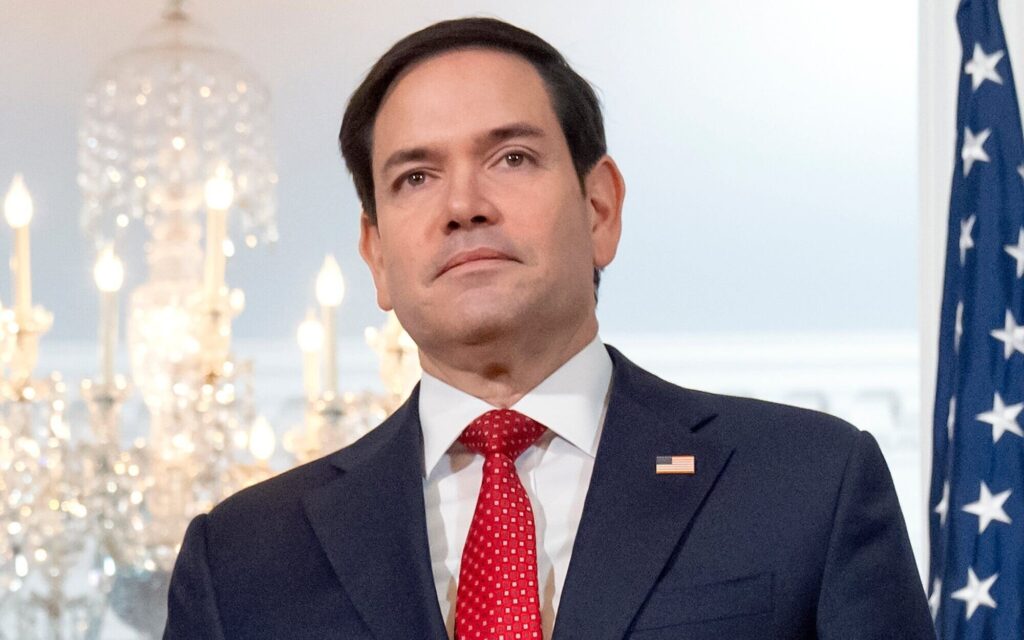The situation in the Middle East is getting complicated, presenting a challenge for U.S. diplomacy. Rubio is heading to Israel to talk after Israel’s recent airstrikes in Qatar. These strikes have caused issues with Washington’s allies in the area. Alliances are shaky, and there are worries that long-term friendships could end if the U.S. doesn’t handle things carefully.
Israel’s Airstrikes Cause Problems
What caused Rubio’s trip? Israel started airstrikes in Doha, targeting Hamas leaders they thought were hiding in Qatar. Israel said it was needed to fight terrorism, but it’s created problems. Qatar, has been accused of protecting Hamas, and they’ve called the attacks a violation of their independence.

This puts Washington in a difficult position. Israel is a close ally, but Qatar hosts big U.S. military bases and is important in talks, such as hostage negotiations. The airstrikes could damage the U.S.’s image as a partner to both sides, and Rubio needs to calm things down before it gets worse.
Balancing Act
Rubio has two main aims in Israel. First, he wants to assure Prime Minister Benjamin Netanyahu that Washington still supports him while encouraging calm in future actions that could expand the conflict beyond Gaza. Second, he needs to show Qatar and other Arab countries that the U.S. respects them and wants to maintain its partnerships in the Gulf. Experts say this will be a difficult balancing act for Rubio. The U.S. can’t lose Israel, but it also can’t risk losing Qatar’s support, one expert said. How Rubio states America’s position will show Middle Eastern allies how reliable Washington is.
Strained Relationships Beyond Israel and Qatar
The strikes have created issues beyond just those two countries. Egypt and Jordan, who have peace agreements with Israel, have asked for calm. Meanwhile, Iran is using this chance to criticize both Israel and Washington, hoping to gain more influence in the Gulf. Even Saudi Arabia, which has considered improving relations with Israel, is paying attention. If the U.S. can’t manage its allies, it could slow down talks and increase divisions in the region.
Tough Time for U.S. Diplomacy
This crisis comes at a bad time for Washington. The U.S. is dealing with political division, and President Donald Trump has been criticized for his Middle East policies. Also, America’s reputation as a reliable go-between is already suffering after years of changing plans in Iraq, Afghanistan, and Syria.
Now, with Israel pushing its military actions and Qatar questioning where the U.S. stands, Rubio’s job is important. If he can calm things down, the U.S. could prove it still has influence in the area. If not, America might seem unable to control its allies or keep balance.
What’s at Stake
There’s a lot at stake here. Qatar’s support is important for U.S. military operations in the region, especially with its Al Udeid Air Base being a hub for American forces. Israel is a key part of U.S. security plans in the Middle East. A loss of trust with either partner could have long-term effects on fighting terrorism, energy security, and overall stability.
Also, there are concerns about people’s well-being. The strikes have made things worse in Gaza and raised fears of more violence. Aid groups worry that more conflict could worsen things for civilians who are already struggling with food, medicine, and housing.
What’s Next
Rubio will meet with Israeli officials, and he might also try to speak with Qatari leaders. He will probably push for calm, keep communication open, and stress America’s commitment to stability in the region. But there’s no guarantee of success. The U.S. has been trying to balance its strong support for Israel with its partnerships in the Arab world for a long time. This crisis makes that balance even harder.
For Rubio, this trip is about more than just one disagreement. It’s about showing that the U.S. can still be a fair go-between in a region where trust is always at risk. The Middle East is used to crises, but this moment will show if America can keep its alliances together or if things will weaken its influence even more. As Rubio arrives in Israel, everyone will be watching. Can Washington find a solution, or will U.S. diplomacy fail because of conflicting loyalties? The answer could decide America’s role in the Middle East for years to come.


